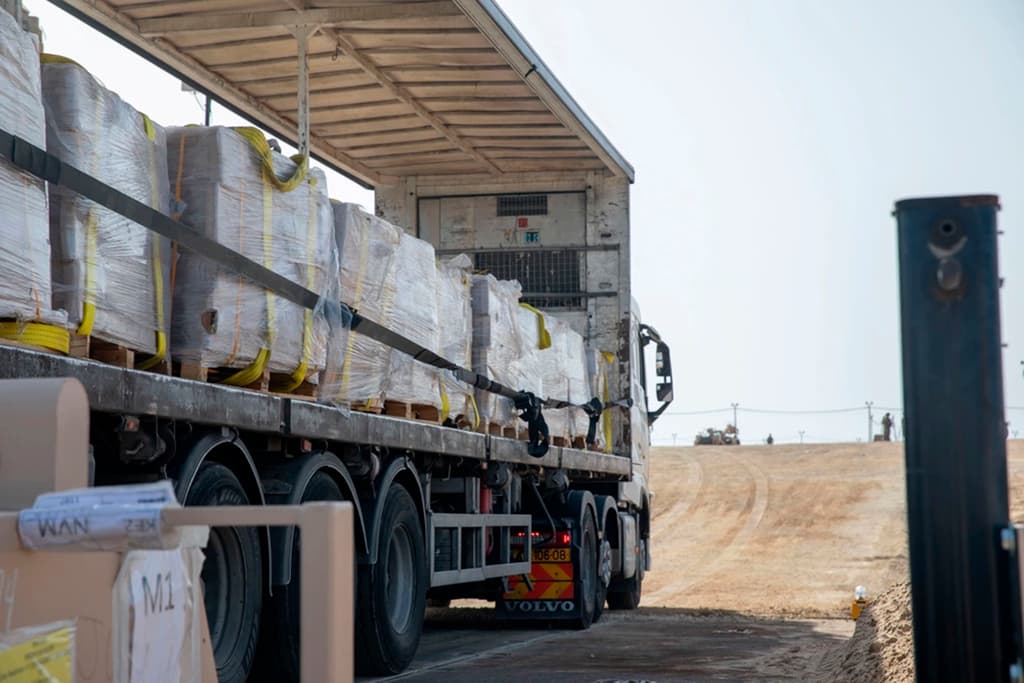Israel's military announces a daily "tactical pause" along a road in the ongoing offensive in southern Gaza to allow in more humanitarian aid.
Prime Minister Netanyahu and the far-right parties in the government express sharp criticism of the move – and it is unclear whether it will be implemented.
The "tactical pause in military activity" was intended to take place every day from 7am to 6pm Swedish time, and create a 12-kilometre-long humanitarian corridor in the area around Rafah, from the Kerem Shalom border crossing to a hospital.
The Israeli military (IDF) made the decision without informing the government and Prime Minister Benjamin Netanyahu, or other ministers.
Netanyahu: "Unacceptable"
The IDF rejects the criticism and says it is a military decision made after Netanyahu demanded safer passages for humanitarian aid, reports the Israeli newspaper Haaretz.
Netanyahu responded that an 11-hour daily ceasefire in the area is unacceptable, according to his office.
"After the situation was clarified, it was conveyed to the Prime Minister that there will be no change in the IDF's policy and that the battles in Rafah will continue as planned," Netanyahu's office announced later on Sunday.
According to the Israeli newspaper Jerusalem Post, there were uncertainties about whether the "technical pause" would be fully implemented.
The purpose of the intended humanitarian pause is to make it possible for trucks carrying emergency aid to reach the nearby Israeli-controlled border crossing Kerem Shalom, south of Rafah, the main crossing point for aid. From there, the trucks would be able to safely reach other parts of Gaza to deliver supplies, according to Israel's military. The operation is being coordinated with the UN and international aid organisations.
The announcement from the IDF was welcomed by Jens Lærke, spokesperson for the UN agency Ocha. Lærke stressed the need for further efforts from the Israeli side to ensure that humanitarian aid reaches its destination.
Starving to death
The Kerem Shalom border crossing has been difficult to pass since Israel launched its ground offensive in Rafah at the beginning of May, partly due to attacks and blockades by Israeli activists. It is unclear whether the IDF will provide protection for the trucks as they drive through Gaza.
Israel's eight-month-long bombardment of Hamas, which was triggered by Hamas's coordinated attacks on Israel on 7 October, has plunged Gaza into a humanitarian crisis. Israel claims it is trying to facilitate humanitarian aid reaching Gaza's civilian population, but human rights groups have been warning for months about a severe shortage of food, medicine, and other necessities in Gaza.
The UN reports widespread hunger and that hundreds of thousands of people are living on the brink of starvation in Gaza. According to the World Health Organisation (WHO), over 8,000 children under five have been treated for acute malnutrition. At least 30 children are reported to have died of starvation, reported The Guardian at the beginning of June.






